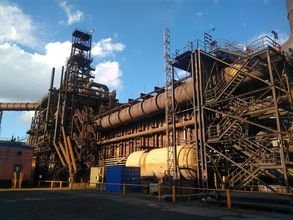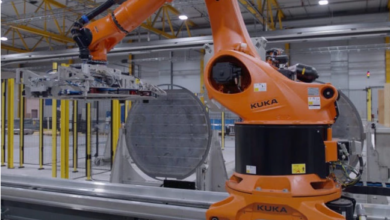Germany pledges €55 million for ArcelorMittal hydrogen-powered DRI plant
ArcelorMittal is seizing the opportunity to become a pioneer of innovative green steel technology.

Germany pledges to provide €55 million in funding to construct the country’s first industrial-scale hydrogen-based direct reduced iron (DRI) plant, using hydrogen exclusively.
Federal Environment Minister Svenja Schulze announced during the visit to ArcelorMittal Germany’s steel plant in Hamburg today (7th September). The amount is half of the €110 million total capital expenditure required for building the plant. In the next step, the European Commission has to approve the German Federal Government’s intention to provide funding before the installation of the new plant.
This demonstrator plant will use hydrogen as the chemical agent to reduce iron ore into DRI, which will be then used in electric arc furnaces with steel scrap, powered by renewable electricity. Production is scheduled to start in 2025.
DRI is currently produced using natural gas to reduce iron ore. In a transition phase, the process of reducing iron ore with hydrogen will first be demonstrated using hydrogen generated by the separation of waste gas from the Hamburg plant until available in sufficient volumes at economical costs.
By 2030, ArcelorMittal plans to produce more than 1 million tonnes/year of zero carbon-emissions steel in the Hamburg plant alone, which would save nearly 800k tonnes of CO2/year emissions.
The plant is an essential part of ArcelorMittal Germany’s Steel4Future strategy, which involves converting its four German plants to zero in Hamburg, Bremen, Duisburg and Eisenhüttenstadt – to zero carbon-emissions steel production in the coming years. The production of low or zero carbon-emissions steel is significantly more expensive than traditional steelmaking methods, and thus steelmakers rely on political support to create the appropriate framework conditions.
Dr Uwe Braun, CEO ArcelorMittal Hamburg, said, “With the intended plant, for the first time we will be able to produce 100,000 tonnes of DRI for steel production using hydrogen – as early as 2025.”
Svenja Schulze, German Federal Environment Minister, said, “If companies invest now in greenhouse gas-neutral processes and products such as green steel, they will be able to survive on the market in the future, and jobs will be secure.”
Jens Kerstan, Senator for the Environment, Climate, Energy and Agriculture in Hamburg, said, “The production of green steel is a particular challenge, and as an environmental authority, we have closely supported the H2H project from the outset.”
Michael Westhagemann, Senator for Economics and Innovation in Hamburg, said, “Decarbonising industry, especially the steel industry, is a socio-political task of the century.”
